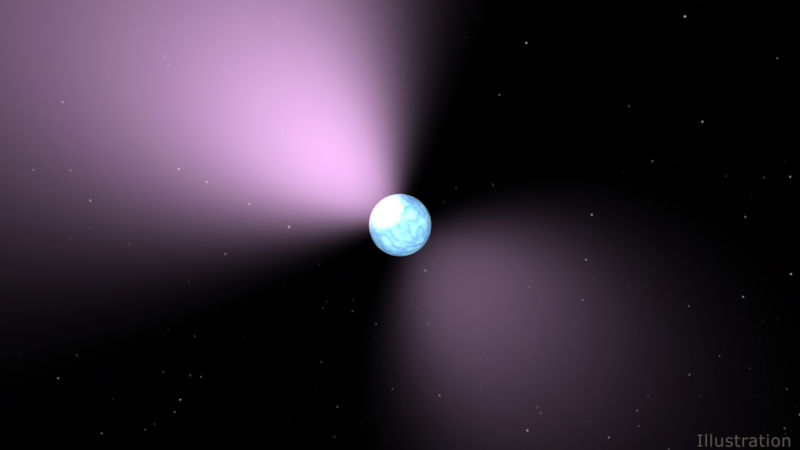Dark matter not at the core of neutron stars

Enlarge (credit: NASA/JPL/Caltech)
The neutron is a bit of a headache for physics. A neutron is an electrically neutral particle that helps glue protons together in the nucleus of atoms. Inside the atom, it is happily stable.
But a neutron alone is an unhappy beast. After about 10 minutes, it will emit an electron and an antineutrino and turn into a proton. The decay is all good, but there's a problem with the "about 10 minutes" part of things. In one set of experiments, we have determined that the half-life of a lonely neutron is 879.6s. But, in another set of experiments, we've found that the neutron has a half-life of 888s (these numbers might be slightly out of date now). The chance of these two being different by accident is now about one in 100,000.
One possible explanation for the difference is that a subset of neutrons decays to a relatively light particle of dark matter. Now, a pair of papers has punctured that proposal.
Read 12 remaining paragraphs | Comments